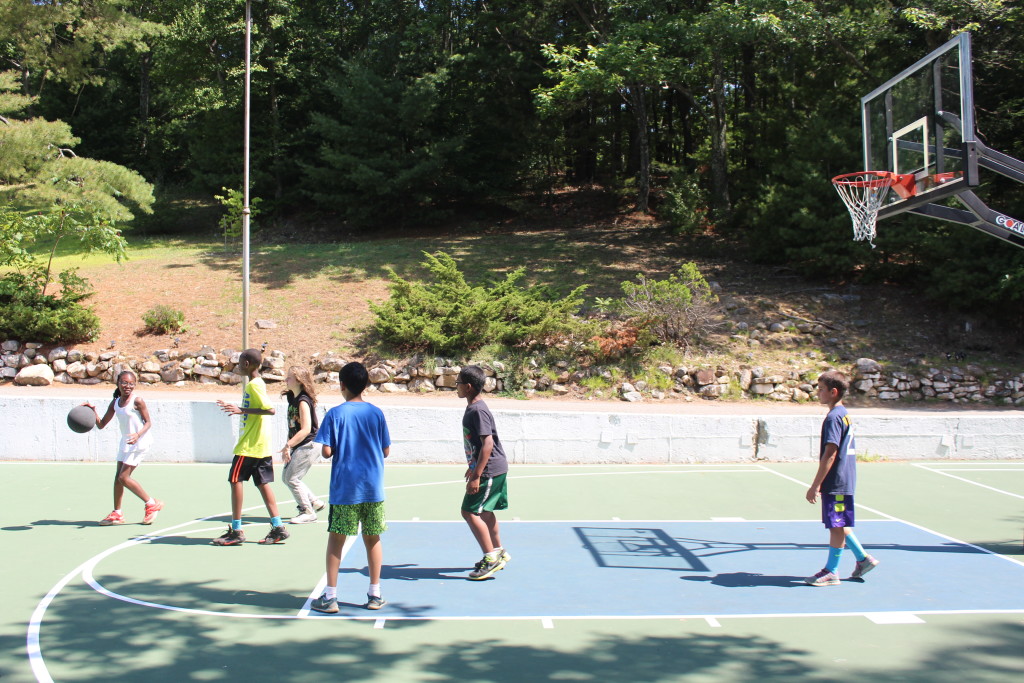http://health.usnews.com/health-news/health-wellness/articles/2013/06/06/sleepaway-camp-a-remedy-for-overparenting
By Rachel Pomerance
June 6, 2013 RSS Feed Print
Sleepaway Camp: A Remedy for Overparenting?
“What was the sweetest moment of your childhood?” is a question psychologist Michael Thompson regularly asks adults. Eighty percent of the time, he says, they’ll recall a memory in which their parents weren’t present. Why? Because the thrill of that moment often was steeped in the exhilaration of independence, says Thompson, author of “Homesick and Happy: How Time Away from Parents Can Help a Child Grow” and a psychologist at an all-boys school near Boston.
At a time when many American parents manage the minutia of their children’s lives well into college – a trend broadly referred to as “overparenting” or “helicopter parenting” – the above exchange serves to remind parents that letting kids go lets them grow. And, according to Thompson and other experts, sleepaway camp provides the perfect occasion.
Amy McCready, founder of Positive Parenting Solutions in Raleigh, N.C. and author of “If I Have to tell You One More Time …,” considers overnight camp training ground for adulthood – and a potential prophylactic against so-called boomerang children. “So many parents have 20-somethings who are coming home, and they can’t get them to fly from the coop, but how will they ever learn to do that if they don’t have opportunities to practice?” Summer camp provides a “structured, safe, well-supervised environment” to do that, she says. “It’s not like you’re sending them off to the city to go and fend for themselves.”
Still, it’s not easy for this generation of parents to let go, says McCready, who includes herself among the ilk of educated, later-in-life, highly-involved parents. “When they’re younger, it starts out to keep them safe, but we have a hard time backing off from that,” she says, explaining that walking a kid to the bus stop morphs into driving a half hour to deliver cookies at camp. “Eventually, we’re calling the college professor because our kid got a C on his philosophy paper.”
If sleepaway camp seems like a good option for your family, here are some tips to prepare you and your child for an adventure experienced by 6 million American school-aged kids each summer:
1. Take baby steps. If your child can’t make it through the night at grandma’s house, he or she is not ready for sleepaway camp, says parenting expert Michele Borba, author of “The Big Book of Parenting Solutions: 101 Answers to Your Everyday Challenges and Wildest Worries.” Borba recommends a trial run with a weekend retreat, like those offered through a local scouting group or Boys & Girls Clubs of America. Then, ask the counselors how your child fared to determine whether he or she is ready for a week or four away.
2. Anticipate their worries – and yours. Allay any concerns by preparing for them – be it a food allergy or fear of swimming. “If he’s scared to death of the water, then let’s take a couple practice swim classes before you go,” says Borba, who also suggests going online and looking at pictures t of the camp beforehand to help your child get acquainted.
If your child is shy, you may want to role play meeting new people and shaking hands, McCready says. And don’t hesitate to register your concerns with the camp staff – even if it’s about how to rein in your own tendency to “helicopter” in. “It is clear parents today are more anxious than their peers were 20 and 30 years ago,” says Peg Smith, CEO of the American Camp Association. “That said, the partnerships between parents and camp directors have increased. Parents are encouraged to share their concerns with camp directors who are prepared to respond with responsible, informed answers.” She also recommends verifying a camp’s accreditation – “some of the best evidence the camp is committed to your child’s safety.”
But whatever you do, try not to show your concern to your child. “Don’t let your anxiety come through. Deal with that on your own,” McCready says. As Borba puts it: “Keep yourself calm because your kid is feeding off of you.” And when you do say goodbye, make it a quick and matter-of-fact one, she says. “You can cry in your own car.”
Remember, too, “every child’s going to have little pangs” of homesickness, she says. (According to Smith, only 1 to 7 percent have homesickness that requires intervention). Talk to the counselor before rushing to rescue your child, Borba advises. “If it doesn’t work at all, and he’s shattered, then so be it. There’s always next year.”
3. Celebrate unplugging. If the camp doesn’t allow cellphones, don’t flout the rules. “Trust the [camp leadership] that they’re going to do the right thing for your kid,” McCready says. Have everyone in the family write something in an old-fashioned letter, she says, and send it so it gets to camp by the time your kid does. The correspondence provides both parent and child with a rare and special memento. “Don’t send emails to the camp counselor,” which can suggest a lack of confidence in the child’s ability to handle the experience, she says.
4. Make this time count for you. You know that thing you want to do that you can’t seem to find time for? Here’s your chance. “Organize your closet, or take a vacation or if you have other children at home, that’s an opportunity to do special time with them,” McCready says.
5. Remember why you’re doing this.
According to Thompson, there are certain things parents can’t give their kids – such as happiness, self-esteem or friends. And there are other things that “the magic of camp” provides: social skills, leadership training and new relationships with counselors, kids, nature and even oneself. Among the hundreds of campers he interviewed, the most frequent comment he heard about camp was: “I can really be myself here.”
If you need something more concrete, McCready suggests making a list of everything you want your kids to get out of the camping experience, and fix it to the fridge for regular reassurance.

